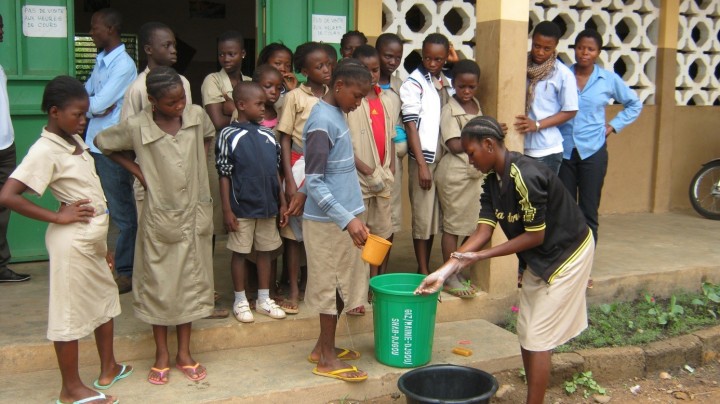Water and sanitation activities of GIZ in Benin
2014 - 2020 • Deutsche Gesellschaft für Internationale Zusammenarbeit (GIZ) GmbH
Purpose
The urban and rural population in general and particularly the population living in the peripheral areas of the municipalities uses the affordable provision of water and sanitation under consideration of relevant hygienic standards.
Activities
In recent years the technical and financial cooperation between Benin and Germany and other partners have improved urban water supply. 85% of the population have now access to hygienically clean drinking water. On the other hand more than 30% of the population (1.8 million people) living in rural areas still lack access to safe drinking water.
Specific successful activities on sanitation in rural areas:
• Promotion of a test that allows the households themselves to test the quality of their drinking water and thus facilitates behavioral change
• Automatic chlorination of drinking water. As of July 2018 592 628 beneficiaries. Further chlorination systems are being established.
• Health Education conducted in 168 primary schools of 10 municipalites in combination with the establishment of separate latrines for boys and girls
Further activities concentrate on strategies and policies. Benin has established policies and strategies like the national policy on sanitation and hygiene (2013), the national strategy for rural sanitation and hygiene (2014), the national strategy on waste water management in urban areas (2007) and the national strategy to monitor the quality of the drinking water (2012). Several of these papers need updating to be in line with SDGs and recent institutional reforms. The GIZ supports these reforms and contributes to the revision of the documents with special emphasis on the quality of drinking water, behavioral change, gender aspects and the effects of climate change.
Images

Image: Sanitation activities of GIZ in Benin
Countries of activity
Location of main activity
Objectives
The specific objective of the joint program implemented by GIZ and KfW is as follows: The urban and rural population in general and particularly the population living in the peripheral areas of the municipalities uses the affordable provision of water and sanitation under consideration of relevant hygienic standards.
Specific objectives on sanitation:
• 60% of samples taken from public taps and water basins in the households are free from fecal coliforms
• 50.000 persons have access to drinking water without fecal coliforms
• 700000 residents of 38 municipalities with at least 50% of the residents living below the poverty line have access to a reliable water supply in terms of both quantity and quality
Contact information
Helga Fink
Login to see the e-mail-adress of the contact person.
Filter tags
Behaviour change German government Political processes and institutional aspects Rural areas Schools Sub-Saharan Africa
Links
Deutsche Gesellschaft für Internationale Zusammenarbeit (GIZ) GmbH
Eschborn
Germany
Uploaded by:
SuSanA secretariat
















